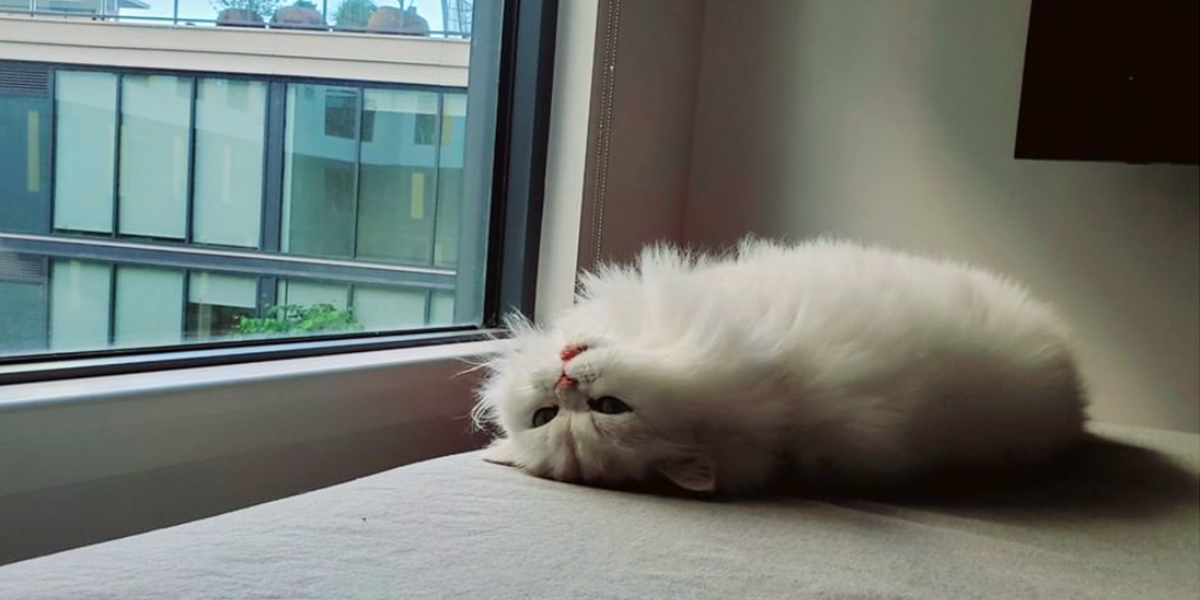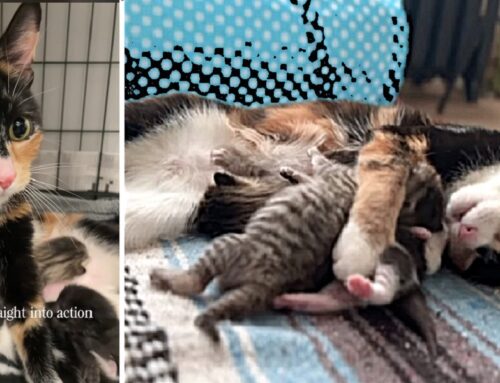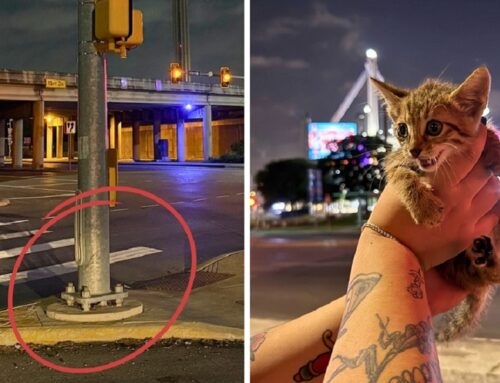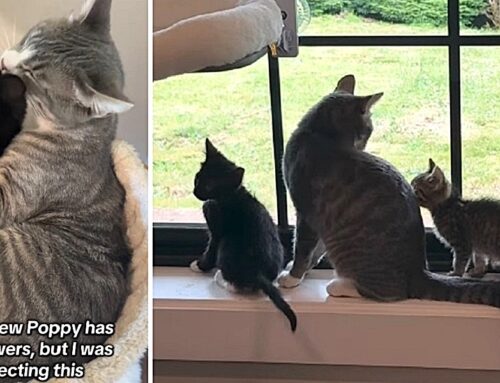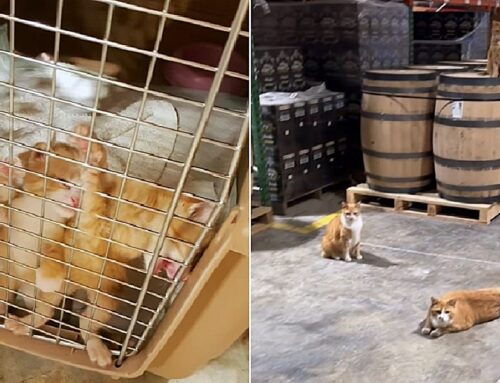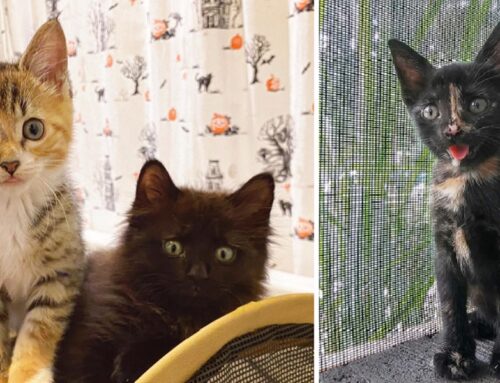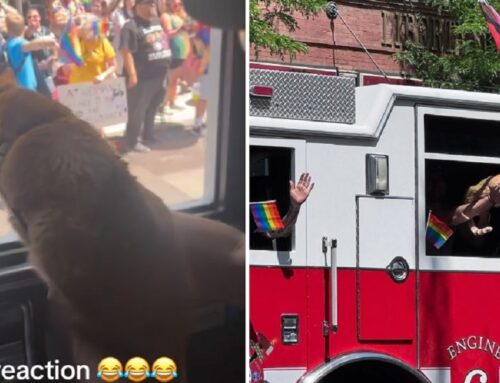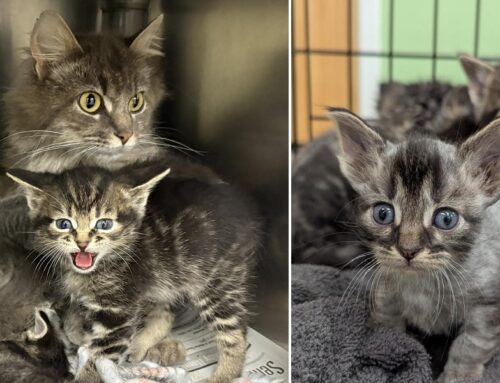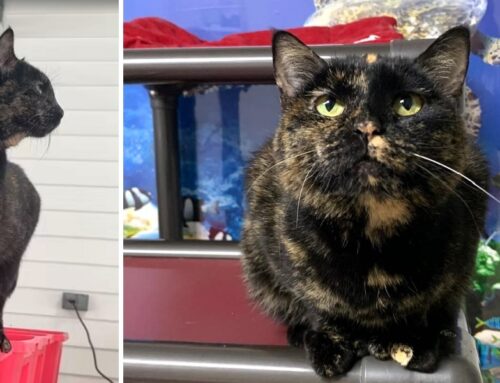Beautiful fluffball Pasha stopped using the litter box after her human family declawed her. After the painful procedure, she also had problems with vomiting and diarrhea. It was inconvenient for the people responsible for her care, so they took her to the vet to be euthanized.
It’s hard to imagine anyone being that cruel, but that’s what happened to Pasha. Fortunately, the veterinarian that saw Pashsa knew she might have a second chance. They reached out to The Paw Project, one of the nation’s leading advocates against declawing. Then, the Paw Project reached out to rescuers at Cat Town from Oakland, California.
Fortunately, the vet knew these rescuers could give Pasha the TLC and time that she deserved.
Pasha Gets a Second Chance
On Instagram, Cat Town shared Pasha’s story:
“Pasha had been taken to the vet to be euthanized by her previous guardian. After being declawed, she stopped using the litter box due to the pain this procedure caused. She also had problems with diarrhea and vomiting. Fortunately, her vet reached out to the Paw Project, one of the nation’s leading advocates against declawing, and they reached out to us, knowing we help cats like Pasha overcome obstacles to adoption,” they wrote.
Like a fluffy cloud, Pasha is seen lying on a bed near a window. Now, she doesn’t seem to have a care in the world. And to think, her life may have been over merely because she was in pain following a declawing “Onychectomy.”
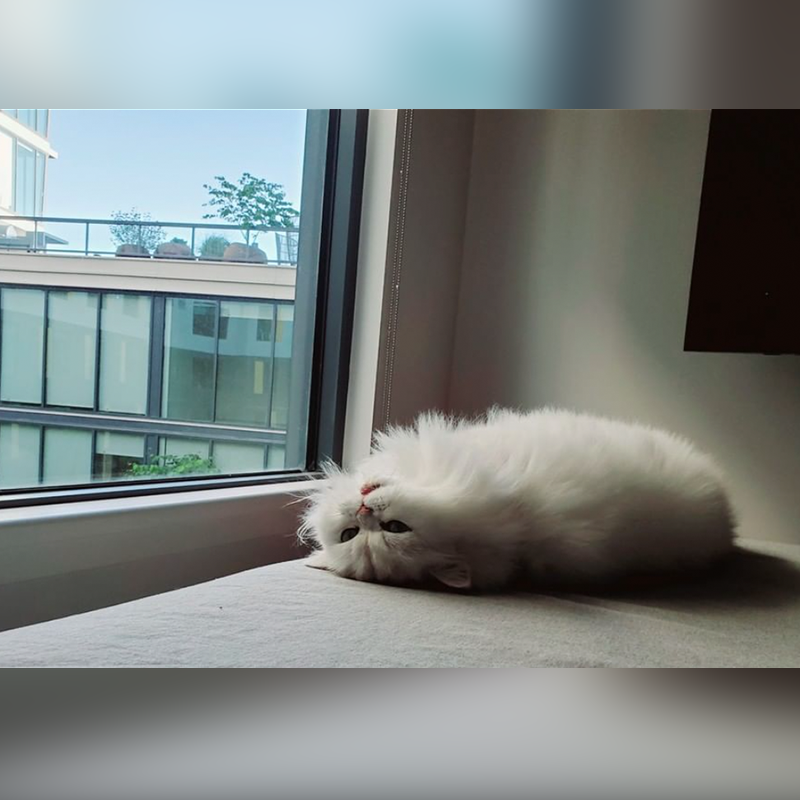
Image via Instagram/ Cat Town
We continue to tell everyone that declawing is a partial amputation of the last bone on a cat’s toes. Its purpose is primarily a convenience for people, although there are rare exceptions. Sometimes, declawing leads to chronic pain for cats as they “strain their leg joints and spine in response to the removal.” So, it’s to be expected that cats may respond with changes in their behavior after undergoing a surgical amputation.
Hard-to-Adopt Cats Get the Care & Time They Need
Thankfully, Pasha and 35 other “hard to adopt” cats found homes thanks to the rescuers in July. As we look through all the adorable faces, it’s wonderful to know these caring rescuers saved each precious life. All they needed was a little time, some TLC, and to find the right person to share their lives with.
Below, you can see Caesar, also saved in the same month as Pasha. In this case, he needed medication for focal seizures that had caused him to behave aggressively. With help from the rescuers, he got the medication he needed and found the perfect home with someone thrilled to have him.
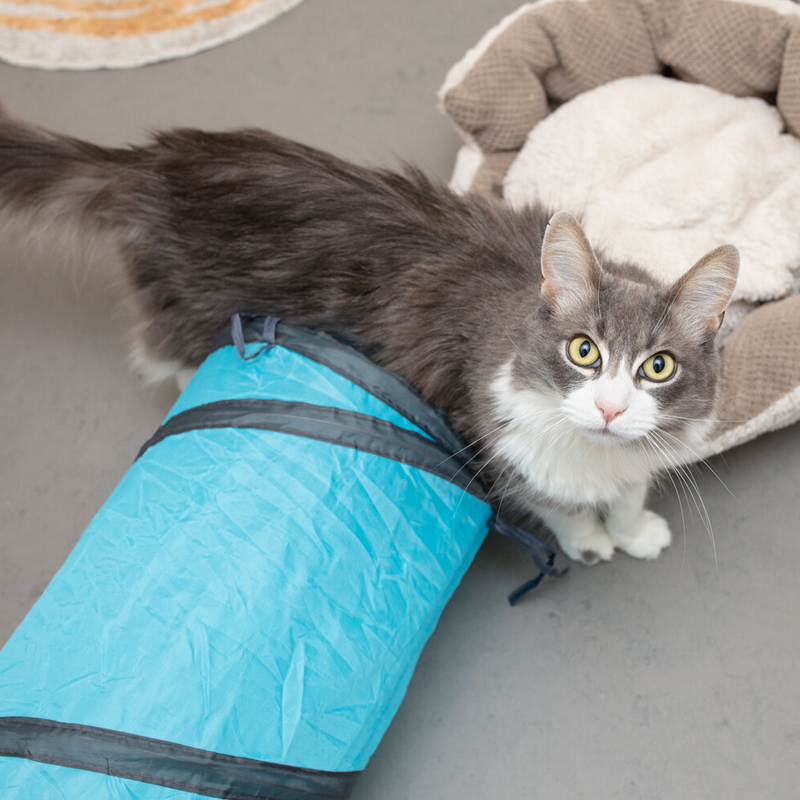
Caesar, another rescued kitty from Cat Town
Often, cats with medical issues or those who don’t use the litter box as expected can be rejected by their guardians. From there, they may not react well to suddenly finding themselves in a crowded shelter. Understandably, they may not feel safe, threatened, and confused by the sudden change of scenery and sounds.
Under such stress, anyone could become overwhelmed, stressed, fearful, and withdrawn.
However, once they have time and the care they need in a foster home, they reveal themselves to be ideal companions. Such was the case with Pasha. Once she had the time and care she needed after the declawing, she soon found a forever home.
“We got her into our foster program and on a special diet and pain medication for her paws, and all of her troubles melted away,” Cat Town said.
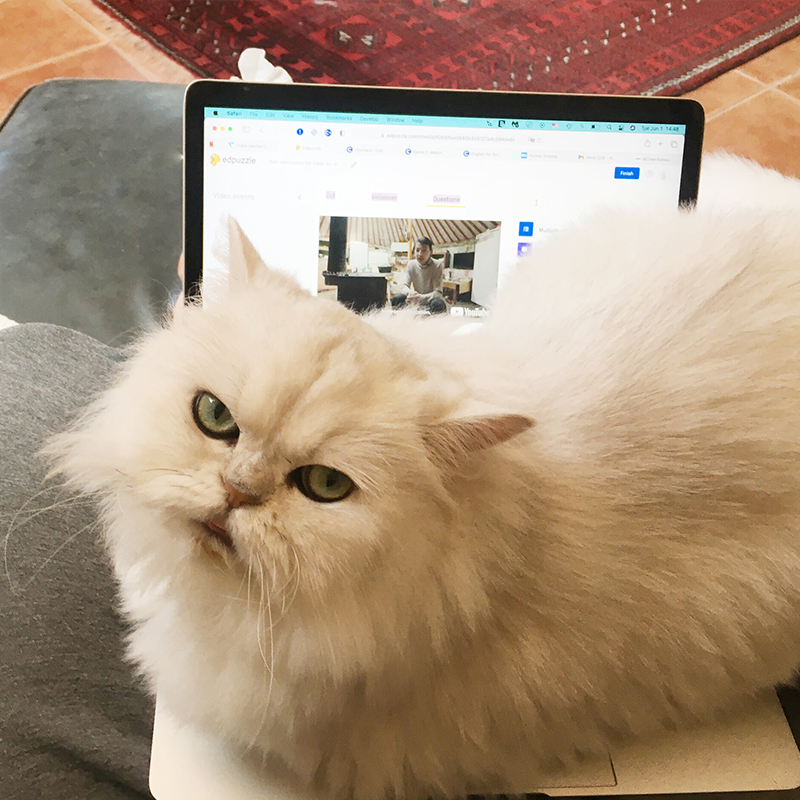
Image via Cat Town’s July blog
Best of all, Pasha has a home where she is going to be treated like a princess. 👑
“Her adopter is committed to giving her the royal treatment and plans to spoil her like a princess!” Cat Town wrote.
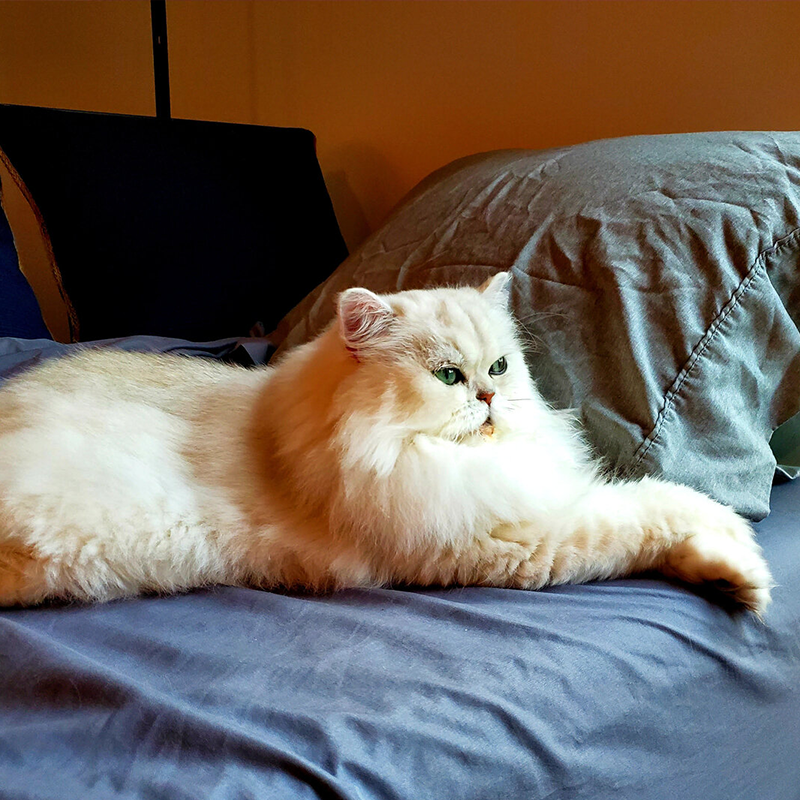
Image via Cat Town’s July blog
For more about declawing, please see our “5 alternatives to declawing your cat.” For more, check out how veterinarians in Canada have deemed declawing inhumane and about efforts to make it illegal in more US states. Since July 2019, New York‘s ban on declawing has been in effect.
To help rescue more cats like Pasha, you can follow or donate to Cat Town, established to save the elderly, stressed, sick, and injured shelter cats facing euthanasia. On their website, they say they’ve helped reduce the euthanasia rate at Oakland’s municipal shelter by more than 70% since 2011. In addition, they are working to change cat rescue nationwide by “sharing our approach with rescue organizations large and small, from coast to coast.”
REMEMBER TO ADOPT, NOT SHOP!!


